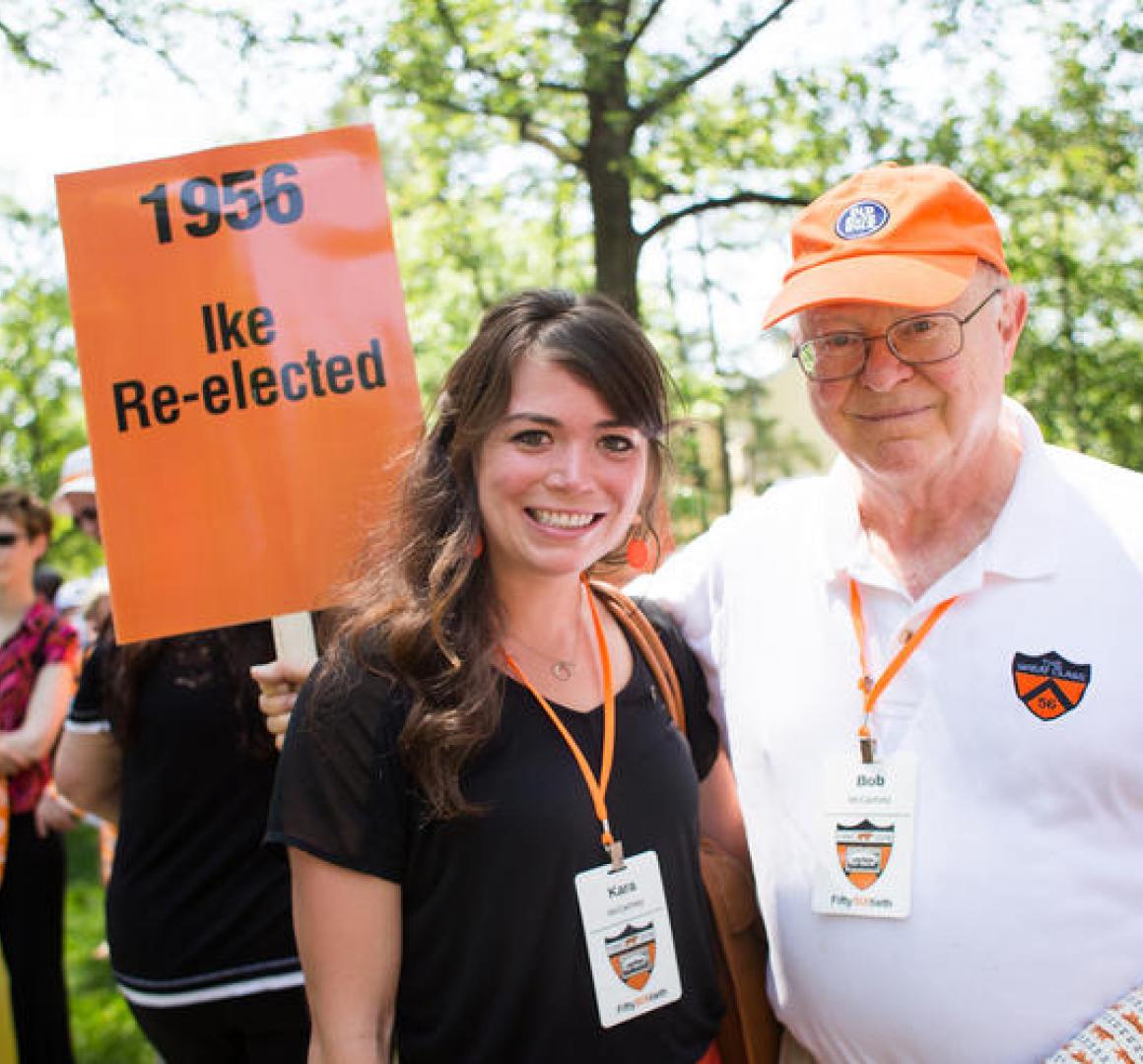Bob McCartney ’56 Advocated Launch of Maclean Society
The founding of the John Maclean Society in the early 1980s was a team project, but Bob McCartney ’56 might be considered its earliest champion.

The founding of the John Maclean Society in the early 1980s was a team project, but Bob McCartney ’56 might be considered its earliest champion. As vice chair of the Alumni Council in 1982, he established the society's mission in a letter: “I would like to see us come up with some means of recognizing long-term alumni service to the University in various areas of activity. Perhaps one means of doing so might be the creation of a president's club or similar group.”
That goal was realized under his watch as chair of the Alumni Council on June 1, 1984. The society’s name was suggested by Donald Dickson ’49.
McCartney’s service to the University stretches back decades, sparked “by accident” when he was recruited as a young attorney in his native Pittsburgh to fly to Chicago for a University alumni conference. He hit it off with his fellow alumni, and enjoyed the experience. When he returned, he thought, “Well, gee, I have to do something now. So I started doing Schools Committee work and that got me interested in a lot of things.”
Since then, McCartney has served in leadership positions for Princeton’s Pittsburgh’s alumni, the Class of 1956, Annual Giving and Planned Giving. He contributed to the two committees that helped organize the University’s 250th anniversary in the mid-1990s, an experience that remains a personal highlight. The habit of service also spilled over to other corners of his life, and at 85, he’s a director for the Pittsburgh Civic Light Opera and the United Methodist Foundation of Western Pennsylvania.
The Maclean Society was built upon McCartney’s blueprint, and he is pleased by its resurgence to reengage loyal alumni and provide opportunities for feedback. “The idea of an email newsletter is really a nifty one,” he said. “Just explaining what the Alumni Council does and how it does it and inviting people to ask questions or make suggestions would be worthy objectives.”
He hopes that more alumni will get — and stay — involved, because he's found that the work is the reward. “It started from a sense of obligation, because I appreciated what Princeton had done in opening opportunities for me,” he said. “But beyond that, it just is fun. You meet lots of interesting people, and the fun becomes the most important part over time.”